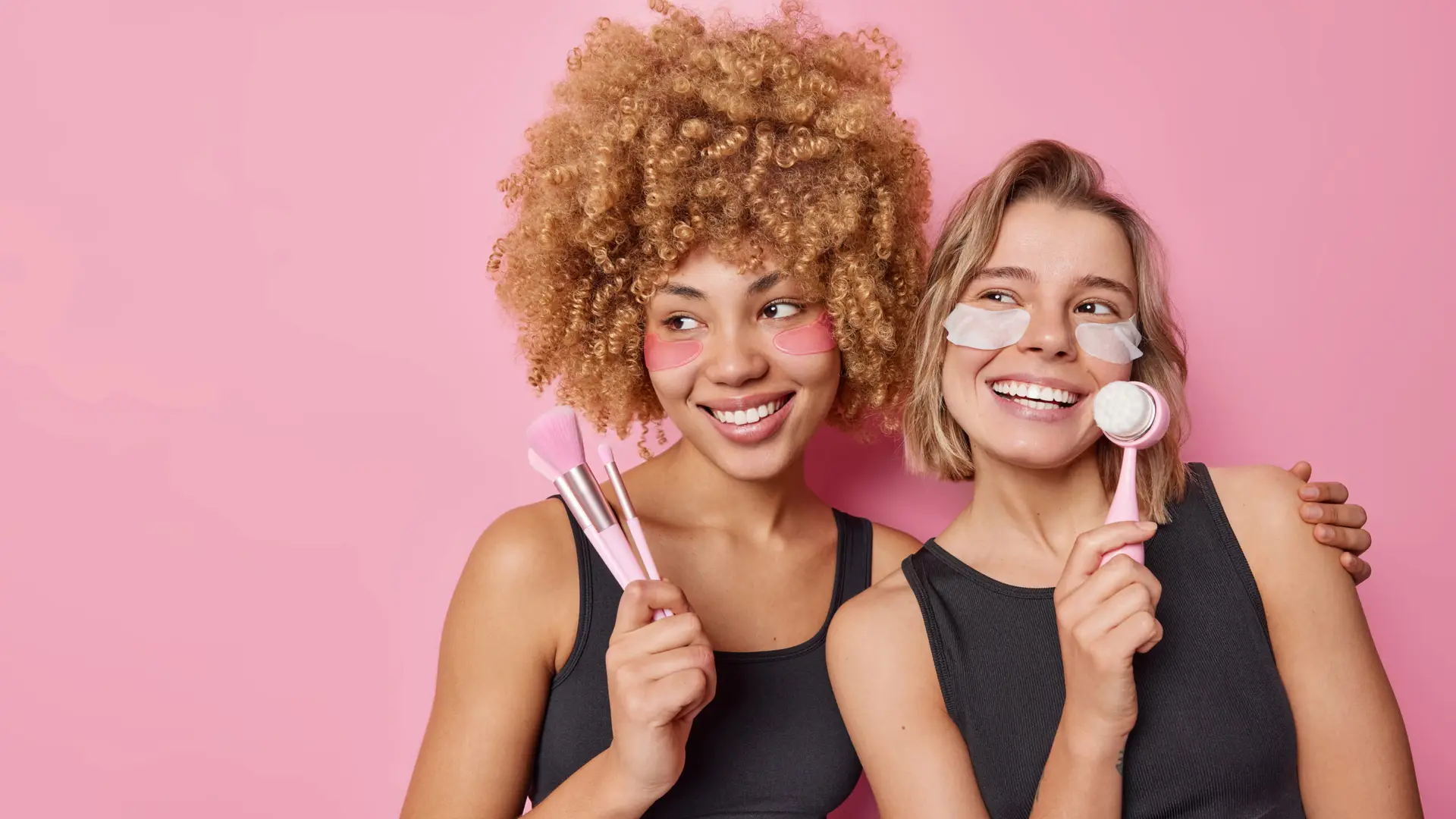Skincare Tips for Teenagers
Share

Taking care of your skin is important, especially when you’re a teenager. During these years, your body goes through many changes, and your skin is no exception. Hormones can cause your skin to produce more oil, leading to acne and other skin issues. Here are some essential skincare tips to help you maintain healthy and glowing skin.
1. Understand Your Skin Type
Before you start any skincare routine, it’s important to know your skin type. There are four main skin types: oily, dry, combination, and normal.
- Oily Skin: If your skin looks shiny and feels greasy, you likely have oily skin. This type is prone to acne.
- Dry Skin: If your skin feels tight and sometimes flaky, you probably have dry skin.
- Combination Skin: If you have an oily T-zone (forehead, nose, and chin) but dry cheeks, you have combination skin.
- Normal Skin: If your skin is neither too oily nor too dry, you have normal skin.
Understanding your skin type helps you choose the right products and treatments.
2. Cleanse Your Skin
Cleansing is the most crucial step in any skincare routine. It helps remove dirt, oil, and impurities that can clog pores and cause acne. Here’s how to do it properly:
- Use a Gentle Cleanser: Choose a cleanser that’s suitable for your skin type. For oily skin, look for a foaming cleanser that controls oil. For dry skin, a creamy cleanser can help retain moisture. If you have sensitive skin, pick a fragrance-free cleanser to avoid irritation.
- Wash Twice Daily: Clean your face twice a day, once in the morning and once before bed. Avoid over-washing, as this can strip your skin of natural oils and cause more problems.
3. Moisturize Daily
Moisturizing keeps your skin hydrated and balanced. Even if you have oily skin, moisturizing is essential because it can help control oil production.
- Choose the Right Moisturizer: For oily skin, use a lightweight, oil-free moisturizer. For dry skin, a heavier, cream-based moisturizer works best. Combination skin types can use a gel moisturizer that’s light but hydrating.
- Apply After Cleansing: Always apply moisturizer after cleansing to lock in hydration.
4. Protect Your Skin from the Sun
Sun protection is vital to prevent skin damage, premature aging, and skin cancer. Here’s how to protect your skin:
- Use Sunscreen: Choose a broad-spectrum sunscreen with at least SPF 30. Apply it every day, even on cloudy days, as UV rays can penetrate clouds.
- Reapply Regularly: If you’re outside for extended periods, reapply sunscreen every two hours.
- Wear Protective Clothing: When possible, wear hats, sunglasses, and clothing that covers your skin to reduce sun exposure.
5. Avoid Touching Your Face
Touching your face can transfer dirt, oil, and bacteria from your hands to your face, leading to breakouts. Try to keep your hands away from your face and avoid picking at pimples, which can cause scars and worsen acne.
6. Eat a Healthy Diet
What you eat affects your skin. A balanced diet can help keep your skin healthy:
- Eat Plenty of Fruits and Vegetables: These are rich in vitamins and antioxidants that promote healthy skin.
- Stay Hydrated: Drink plenty of water to keep your skin hydrated from the inside out.
- Limit Sugary Foods: Sugary foods can trigger acne, so it’s best to consume them in moderation.
7. Stay Active
Exercise helps increase blood flow, which nourishes skin cells and keeps them healthy. Physical activity can also help reduce stress, which is a known trigger for acne.
- Exercise Regularly: Aim for at least 30 minutes of physical activity most days of the week.
- Shower After Sweating: Always shower after exercising to remove sweat and prevent clogged pores.
8. Get Enough Sleep
Sleep is crucial for overall health, including your skin. During sleep, your body repairs itself, which helps your skin stay healthy.
- Aim for 8 Hours of Sleep: Try to get at least eight hours of sleep each night.
- Establish a Routine: Go to bed and wake up at the same time every day to regulate your sleep cycle.
9. Manage Stress
Stress can cause skin problems such as acne and eczema. Managing stress is important for clear and healthy skin.
- Practice Relaxation Techniques: Activities like yoga, meditation, and deep breathing can help reduce stress.
- Stay Organized: Keep a planner or to-do list to manage your time effectively and reduce stress from last-minute tasks.
10. Use Acne Treatments Wisely
If you have acne, there are several treatments available. Over-the-counter products with ingredients like benzoyl peroxide, salicylic acid, and retinoids can help manage acne. Here’s how to use them:
- Start Slowly: Begin with a lower concentration to see how your skin reacts.
- Follow Instructions: Always follow the instructions on the product packaging. Overuse can irritate your skin.
- Consult a Dermatologist: If over-the-counter products don’t work, see a dermatologist for stronger treatments.
Conclusion
Taking care of your skin doesn’t have to be complicated. By following these simple tips—understanding your skin type, cleansing and moisturizing daily, protecting your skin from the sun, avoiding touching your face, eating a healthy diet, staying active, getting enough sleep, managing stress, and using acne treatments wisely—you can achieve healthy, glowing skin. Remember, everyone’s skin is different, so it may take some time to find what works best for you. Be patient and consistent with your skincare routine for the best results.








